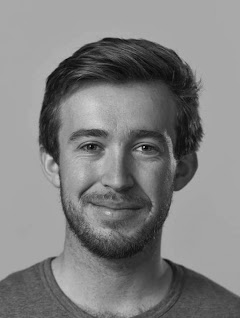Beat
Immigration, politics, breaking news, and documentary stories
One Shot

“I made this image while on a Border Patrol embed. It’s an important picture to me because it depicts the exact moment that a very long journey essentially came to an end for these migrants. The moment they’re apprehended by Border Patrol is when many migrants realize their efforts failed. The fear in the eyes of the young man on the bottom left is what stops me with this picture.”
Profile
My earliest memory of photography was being given a disposable camera on a family trip as a kid, to keep me occupied. I remember running through the whole roll of film far too quickly.
I took a film photography class in high school. As a 16-year-old, I’d often spend my lunch periods in the dark room printing images.
When Barack Obama was re-elected in 2012, I was sent out by my college’s newspaper to photograph street celebrations in Seattle. That night was the first time I felt the sense of purpose in documenting something historical that has kept me behind the camera since. The cliché that journalists get “a front-row seat to history” is especially true for photojournalists.
My first assignment for Reuters was photographing a youth rodeo in central Florida. Rodeos are inherently visual and always a blast to photograph. I’d never worked for an international agency before, so I was pretty thrilled at the time to see one of the images land in The Guardian’s pictures-of-the-day shortly after. I learned photographing close to the gates during a bull-riding competition can be a messy experience that involves a major cleaning of all camera gear afterwards! Worth it though.
Covering the family separation crisis that resulted from the Trump administration’s “zero tolerance” policy is something that will always stay with me. I spent multiple weeks shadowing migrant mothers as they struggled to locate their children and get them back. Seeing the pain these mothers endured, unsure of their children’s well-being, was incredibly rattling. Their suffering was terrible.
I’m in my element covering dynamic stories that are changing day to day. Whether it’s immigration, politics or something else altogether, I find meaning in being on the front lines of quickly-developing news. It’s in these situations when photographs can be so effective at informing the public and shaping history.
Photojournalism informs. It takes viewers to a moment and place they’d never otherwise see. In its purest form, photojournalism makes people ask hard questions and consider ideas and perspectives they wouldn’t otherwise.
When working for Reuters, I’m always aware that the images will be seen by a global audience. For that reason, I strive to create context in my pictures so that their meaning will translate to viewers in any country.
Photojournalism continually teaches me to stay observant. It’s often the little details that are easy to miss that lead to the strongest pictures.
For photojournalists starting out I would say don’t be too hard on yourself when you miss pictures. It’s often when you’re mentally distracted because you’re beating yourself up over missing a nice moment that a far better moment occurs, and you’ll miss that one too if you’re not present and focused.
I really respect Lane DeGregory. She’s not a photographer, but a reporter. I worked with Lane at the Tampa Bay Times, where I got my first newspaper job. I learned from her that humility, empathy and compassion are the most important qualities a journalist can have.
I think and hope that still photographs will always be powerful in a way that video, VR and other emerging technologies cannot replace.
Behind the Scenes

